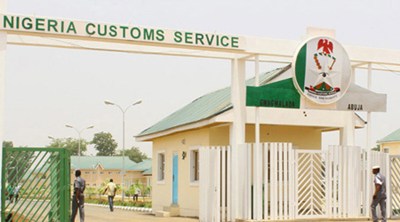Freight Forwarders Urge Transport Ministry To Audit CRFFN Accounts

Dissatisfied with the fiscal operations of the Council for the Regulation of Freight Forwarding in Nigeria (CRFFN), freight forwarders have called on the Ministry of Transportation to render an audited account of CRFFN since inception.
A former Chairman of the National Association of Government Approved Freight Forwarders (NAGAFF) MMIA Chapter, Dr Segun Musa made this call in an open letter to the Minister of Transportation.
Invoking the powers in the Freedom of Information (FoI) Act, Dr Musa warned the Transport Ministry to respect the FOI Act and give details of total collection from individual and corporate annual dues from inception of CRFFN and explain how it has been utilized as well as the law that backed up the usage.
He said the Ministry’s inability to render an audited account of the Council has raised suspicion of mismanagement of the public funds tagged (annual dues) contributed by freight forwarders into the coffers of the federal government under the supervision of the ministry, by stakeholders.
According to him, “the reports in circulation indicates that the Ministry of Transportation has mismanaged hundreds of millions of naira so far contributed by freight forwarders as the stipulated dues in line with the Act that established the CRFFN from their income aside statutory taxes and deductibles”.
He said the law compelled every freight forwarding companies to pay stipulated amount as dues annually as well as every individual staff of the companies to remain in practice.
“Despite the inconveniences due to the global economic meltdown and slowdowns in business as well as the biting inflation impacts, members of the freight forwarding industry endeavoured to comply to the directives as enshrined in the law.”
“However, it is sad to note that the essence of compliance is due to the fact that the revenue pool would be deployed to build members capacity to meet global standards as well as positioning stakeholders strategy to participate in oil and Gas sectors in Nigeria,” he said.
He posited that it is most unfortunate that all the training organized were paid for in full by stakeholders.
“The alleged mismanagement of public funds contributed by freight forwarders came as a result of the same ministry of transport that has not accounted for the hundreds of millions of naira contributed so far aside government allocations and subvention now demanding for revenues from every imported shipments into the country tagged Practitioner’s Operating Fees (POF).”
“This simply means regardless of membership annual subscriptions or dues paid, aside the Customs licence renewed with lots of money, and aside Customs duties, shipping companies charges and terminal charges you will still have to pay something similar to customs duty to the ministry of transport before imported goods will be allowed to exit the ports.”
“This is the kind of policy that has made our ports not to be business friendly and has been encouraging manufacturers exiting our country as well forcing importers to cut corners in order to make ends meet,” he stated.







